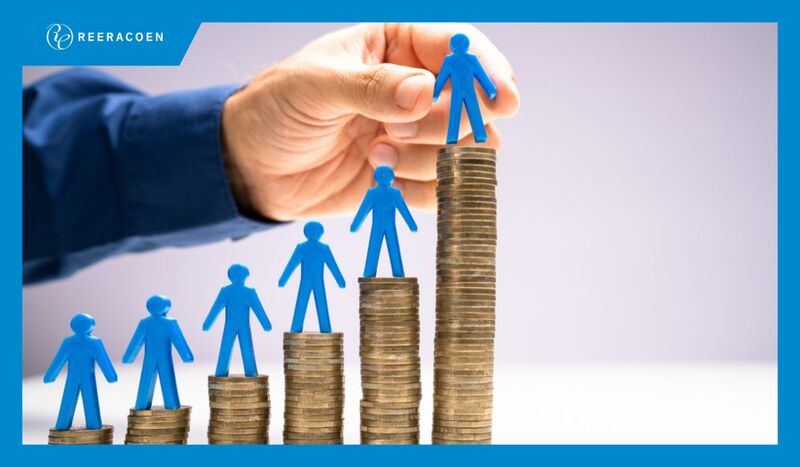Vietnam Ranked Second Happiest Country in Southeast Asia
Vietnam Ranked Second Happiest Country in Southeast Asia: What This Means for Workers and Employers
Vietnam has once again made headlines — this time not for its economic growth or tourism appeal, but for something deeper: happiness. According to the newly released 2025 World Happiness Report, Vietnam is now officially the second happiest country in Southeast Asia and the third happiest in all of Asia. This achievement is more than just symbolic — it reflects meaningful progress in quality of life, societal well-being, and national development.
At Reeracoen Vietnam, a leading recruitment agency in Vietnam and across APAC, we believe this milestone is a powerful indicator of the country's evolving work culture, talent dynamics, and business environment. So what’s behind Vietnam’s happiness surge — and what does it mean for Vietnamese clients and workers?
A Steady Climb Up the Global Happiness Ladder
The World Happiness Report, released annually by Oxford University’s Wellbeing Research Centre, ranks 143 countries based on six key metrics: social support, GDP per capita, healthy life expectancy, freedom to make life choices, generosity, and perceptions of corruption.
Vietnam has been steadily climbing the ranks:
-
2021: 77th
-
2022: 65th
-
2023: 54th
-
2025: 46th
This marks a 31-place improvement in just four years — an exceptional leap that places Vietnam ahead of many regional peers.
Regionally Ranked, Globally Noticed
Within Southeast Asia, Vietnam now ranks just behind Singapore in overall happiness. On a broader scale, Vietnam is the third happiest country in Asia, trailing only Taiwan and Singapore. These rankings are significant for both national pride and global positioning.
For international companies and investors, a country's happiness index often correlates with factors like political stability, ease of doing business, and social cohesion — all of which are increasingly important in a globalised economy.
Why Are Vietnamese People Happier?
Vietnam’s improving happiness ranking is linked to several interconnected factors:
-
Strong social cohesion: Family ties, community support, and intergenerational living continue to anchor Vietnamese society.
-
Economic opportunity: Despite global headwinds, Vietnam’s GDP grew at a steady rate of 5.05% in Q1 2024, while maintaining low unemployment levels.
-
Health and life expectancy: Vietnam boasts one of the highest life expectancies in Southeast Asia — over 73 years.
-
Freedom and optimism: Surveys show that a large portion of Vietnamese youth feel optimistic about their future, particularly in education and career development.
-
Community kindness: Volunteerism and charitable acts — particularly during Tet and national disasters — remain common across all age groups.
What This Means for Employers in Vietnam
For business leaders and HR professionals, Vietnam’s happiness status presents a few key takeaways:
-
Employee retention and engagement: Happier societies tend to foster more satisfied workers. Companies that build strong internal cultures and show real concern for well-being are more likely to retain talent.
-
Employer branding advantage: For firms hiring foreign talent or regional candidates, being based in one of Asia’s happiest countries is a strong selling point.
-
Workplace wellness programs: As happiness becomes a national talking point, there’s an opportunity to introduce or enhance programs related to mental health, flexible work, and professional growth.
What This Means for Vietnamese Workers
For job seekers and professionals, the report signals that Vietnam is becoming a better place to work and live — not just in terms of income, but in life satisfaction.
-
Young professionals are more motivated to build their careers at home, reducing the brain drain trend seen in previous decades.
-
Women in the workforce benefit from growing gender equality and increased access to professional roles, particularly in urban centres.
-
Blue-collar and service sector workers are seeing incremental but meaningful improvements in wage stability and working conditions.
Final Thoughts
Vietnam’s rise as one of Asia’s happiest nations tells a bigger story — one of resilience, reform, and rapid development. For businesses, it’s a reminder that workplace happiness matters. For workers, it’s an affirmation that their hard work is contributing to a brighter, more balanced society.
At Reeracoen Vietnam, we’re proud to connect people to opportunities that contribute not just to career success, but also to life satisfaction. Because a thriving workforce is a happy one — and in Vietnam, that future is already taking shape.
Looking to Hire?
Please fill in this Inquiry Form — Our experienced Recruitment Consultants will be in touch with you soon!
Disclaimer:
The information provided in our blog articles is intended for general informational purposes only. It is not a substitute for professional advice and should not be relied upon as such.
While we strive to provide accurate and up-to-date information, the ever-evolving nature of certain topics may result in content becoming outdated or inaccurate over time. Therefore, we recommend consulting with qualified professionals or experts in the respective fields for specific advice or guidance. Any actions taken based on the information contained in our blog articles are solely at the reader's discretion and risk. We do not assume any responsibility or liability for any loss, damage, or adverse consequences incurred as a result of such actions.
We may occasionally provide links to external websites or resources for further information or reference. These links are provided for convenience and do not imply endorsement or responsibility for the content or accuracy of these external sources. Our blog articles may also include personal opinions, views, or interpretations of the authors, which do not necessarily reflect the views of our organisation as a whole. We encourage readers to verify the accuracy and relevance of information presented in our blog articles and to seek professional advice when needed.
Your use of this website and its content constitutes acceptance of this disclaimer.
References


